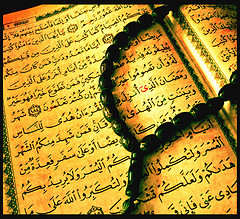Widely acknowledged as Jakarta’s most effective and popular Governor in a generation, Basuki Tjahaja Purnama, a Christian, also known as “Ahok”, was soundly defeated in a recent election. How did that happen?
Media personality, Yassim Abdel-Magied, said Islam is “the most feminist religion”. But in the forthcoming elections in Iran, more than 130 women reportedly submitted their names to be considered by the all male Guardians Council as candidates. None was selected. Don’t Islamic authorities know about their feminist side?
Liberal scholar, Shadi Hamid, a member of the highly respected Brookings Institute in the USA, surprisingly wrote, “If (ISIS) were destroyed tomorrow morning, the Islamic State would still stand as one of the most successful and distinctly ‘Islamist’ state-building projects of recent decades.” What sort of “success” does he mean?
In Australia, thirty imams reportedly signed an open letter in which they stated, “Islam categorically prohibits and denounces violence against women.” Yet at about the same time, Dina Ali Lasloom, aged 24, was on a flight to Australia to escape from her abusive family in Saudi Arabia. During a change of flights in Manila the Saudi embassy phoned the Philippines authority advising that her passport had been cancelled and they were to detain her till relatives arrived to take her back to Saudi Arabia. Witness accounts report that when her “uncles” arrived, they beat her, taped her mouth shut and wrapped her in something like a sheet, all to stop her screaming and kicking in protest. They then carried her back onto a plane bound for Saudi Arabia, in spite of her prerecorded plea that she would probably be killed there.
Didn’t the Saudis know that violence against women was prohibited?
In Australia, Reem Allouche, a teacher and Atika Latifi produced a 33-minute video explaining it was okay for a Muslim husband to beat his wife. They demonstrated how it was to be done properly. Their opinion was that it was to be regarded as a “beautiful blessing” which “promotes tranquility”. But Ed Husic, the first Muslim politician (ALP) to be elected to Australian Federal Parliament, reportedly said such practices were “not acceptable”.
Didn’t he know that one of the foremost authorities on interpreting Islam, Sheikh Ahmad al-Tayyeb, Grand Mufti of Al-Azar Mosque in Cairo, had affirmed that according to Quranic recommended practice, wife beating is permissible and necessary “to reform her”?
The video ladies asserted that “Islam is not gender biased”, but the President of the Australian National Imams’ Council, Sheik Shady Alsuleiman, reportedly said that men do have authority over their wives, “to care for them” and further admitted that if a wife refuses to come to her husband’s bed, angels would continue to curse her till morning, that she cannot bring anyone into the family home or leave it without the husband’s permission.
When someone may bring a corrective by quoting from Islam’s sacred texts, the Quran, Traditions or Biographies of Prophet Muhammad to prove the point being made, then a Muslim apologist, such as Silma Ihram of the Australian (Muslim) Women’s Association, will often reply that people have no right to quote the Quran. That is a right reserved for Muslim scholars.
How can all these claims and counter claims be reconciled? Is one right and the opposing view wrong?
The answer is that from within an Islamic perspective they are all valid and correct. It’s just that each answer may serve a different purpose. That which seems illogical to the infidel non-Muslim may make perfect sense to a sincere Muslim.
When Silma Ihrain said that only Muslim scholars should be quoting and commenting on the Quran, this is a view widely held among Muslims. They believe that the Quran is perfect in every respect and can only exist in the “heavenly language” of Arabic. Any Quranic text apart from that in Arabic is considered to be an interpretation not a translation and therefore is unreliable. As most Muslims are not fluent in classical Arabic they must be guided by appropriate authorities. This is similar to when only priests in medieval Christianity could teach from the Latin Bible, because common people were regarded as ignorant and unqualified.
When it comes to obtaining an authoritative ruling based upon the texts of Islam there are more problems. There is no centralized authority in the Muslim world on such issues, so sometimes there will be disagreements amongst scholars as to what the correct position is.
Then there are bigger issues.
(To be continued)
To purchase a copy of my book The Hidden Half please click here The Hidden Half
 If you want to learn more click onto the link below and listen in. Even better, buy a copy of my latest book, “the Hidden Half—Women and Islam”. Go to the “Books” section on this site to make your purchase.
If you want to learn more click onto the link below and listen in. Even better, buy a copy of my latest book, “the Hidden Half—Women and Islam”. Go to the “Books” section on this site to make your purchase.









You must be logged in to post a comment.